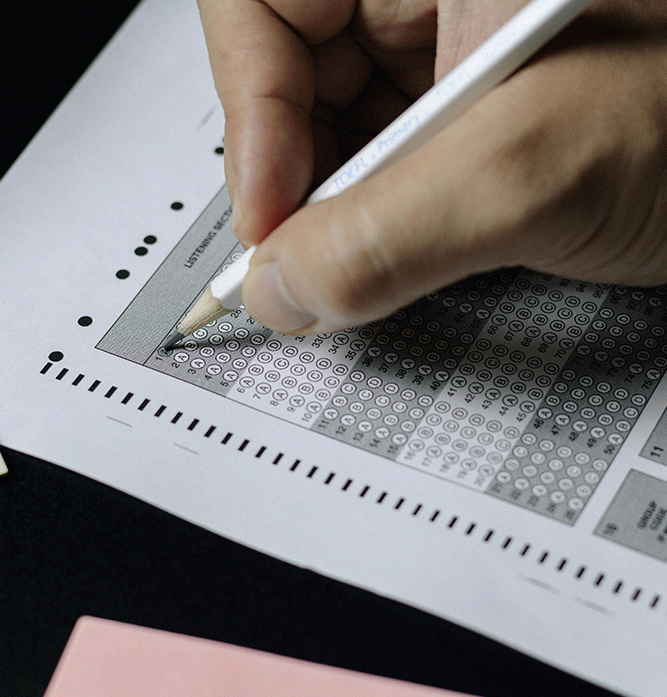Deciding the Future of the MCAS Graduation Requirement with Question 2
By Princess Yeboah | Assistant Editor

Question 2 on the election ballot addresses the MCAS testing requirement for high school graduation. This year, Massachusetts voters will decide whether to keep or change the rule that requires students to pass the MCAS to graduate. A “yes” vote would remove the requirement that students pass MCAS, while voting “no” would mean the requirement would still be in effect. According to the Rennie Center Education Research and Policy, the MCAS became a requirement to graduate in 2003. While some find this test motivating, some educators support keeping the test but without making it a graduation requirement.
The Massachusetts Teachers Association reports that many educators see the test as problematic, saying, “The current testing system reduces time to teach, narrows curriculum, adds stress and reduces creativity and misuses education dollars.” Educators also feel the MCAS is not ideal for “students with Individualized Education Plans, students learning English as a second language, students of color and students from groups that have been historically marginalized from a quotable and supportive education.” further calling for change in the testing requirements.
Desiree Leader, a student at MWCC and a former paraeducator for 16 years, commented on how the MCAS affects students with learning disabilities. “The only people that are exempt from the test are the ones that are allowed alternate assessments [allowed in their] IEP’s. Probably less than 5% of the population,” stated Leader.
The Massachusetts Department of Elementary and Secondary education (DESE) supports this statement. DESE shares on their website, “…states must limit the total number of students designated to participate in an alternate assessment based on alternate achievement standards (i.e., the MCAS-Alt) to one percent of the total number of students who participate in general state assessments.”
Even for most students with accommodations, the MCAS is still mandatory. While the format might differ from the standard version, students—especially those with learning disabilities—face challenges in areas like reading and mathematics. Limited resources often prevent these students from testing at a proficient level.
While some, like Leader, believe the MCAS does not benefit all students equally, at least one Mount Wachusett Community College student reports enjoying the opportunity to take the test. Alcapone Pujols, another student at the Mount, appreciated the motivation the test provided him for his classroom learning. “It was just the stuff that they taught me for a year.” Pujols said, noting that he does not see the MCAS test as something totally unrelated to his education, but rather knowledge that has been acquired over time.
An article from Boston University Radio (WBUR) talks about Question 2 on the voting ballot for the election. A former teacher critiques the MCAS, stating, “The MCAS simply measures the ability to be a good test taker.”
MWCC President James Vander Hooven gave input on MCAS regulations saying, “Too often, teachers are in a position of teaching the test, as opposed to teaching the art of learning and critical language.”
A different article from WBUR voices positivity in light of MCAS, calling it a “tool.” The article explains, “It doesn’t tell us everything, but it tells us something really important about how our kids are doing in class.”
The outcome of Question 2 will ultimately decide whether students have to pass the MCAS to graduate. Even if the majority votes “yes,” it’s important for voters to keep in mind that the MCAS will remain a mandatory test. Whatever the outcome is from the collection of votes, the decision will impact both public and some private school students’ testing curriculum and how their abilities are measured.
Comments are closed.